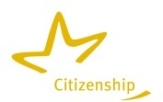Das Netzwerk Migration erhält seit 2006/2007 eine Betriebskosten- finanzierung von der Europäischen Union.


With the support of the European Union: Support for organisations active at European level in the field of active European citizenship.
Network
Who we are

The Network Migration in Europe welcomes you to its homepage!
Who we are
Founded in 2001, the Network Migration regards itself as a platform of scholars and practitioners within the field of migration and integration. Our work interconnects information, education, consultation, research and networking within Europe.
What we want
Our main aim is to transfer knowledge from theory to practice. In doing so, our most prominent fields of action are:
-
To provide information about migration, integration, immigration politics and population development worldwide, mainly focussing on Germany, Europe and North America. Accordingly, our newsletter “Migration and Population” and the information portal, www.migration-info.de, currently provide information for approximately 10,000 subscribers.
-
To establish a dialogue and network between science, media, culture, politics and the European political educational work. Since 2003 our German-English expert database “Migration – Immigration Society – Intercultural Life” provides the opportunity of a systematic search for European experts. The network gathers important nation wide information for the European website of integration relevant to the European public.
-
To offer online education and teaching material on the aspects of (forced) migration and human rights in Europe, relating to both the past and the present. Therefore, our service-portal “Migration Citizenship Education” consists of analyses and teaching material open to figures of political education, but also to a wider public interest. Additionally, the educational portal “The Unwanted” holds interactive modules for pupils encouraging autodidactic learning.
-
To provide advise concerning questions relating to the practical handling of the immigration society for institutions and people (e.g. integration delegates, integration offices, educational institutions).
-
To arrange training seminars and conferences on the topics of migration, integration and minority as well as human rights.